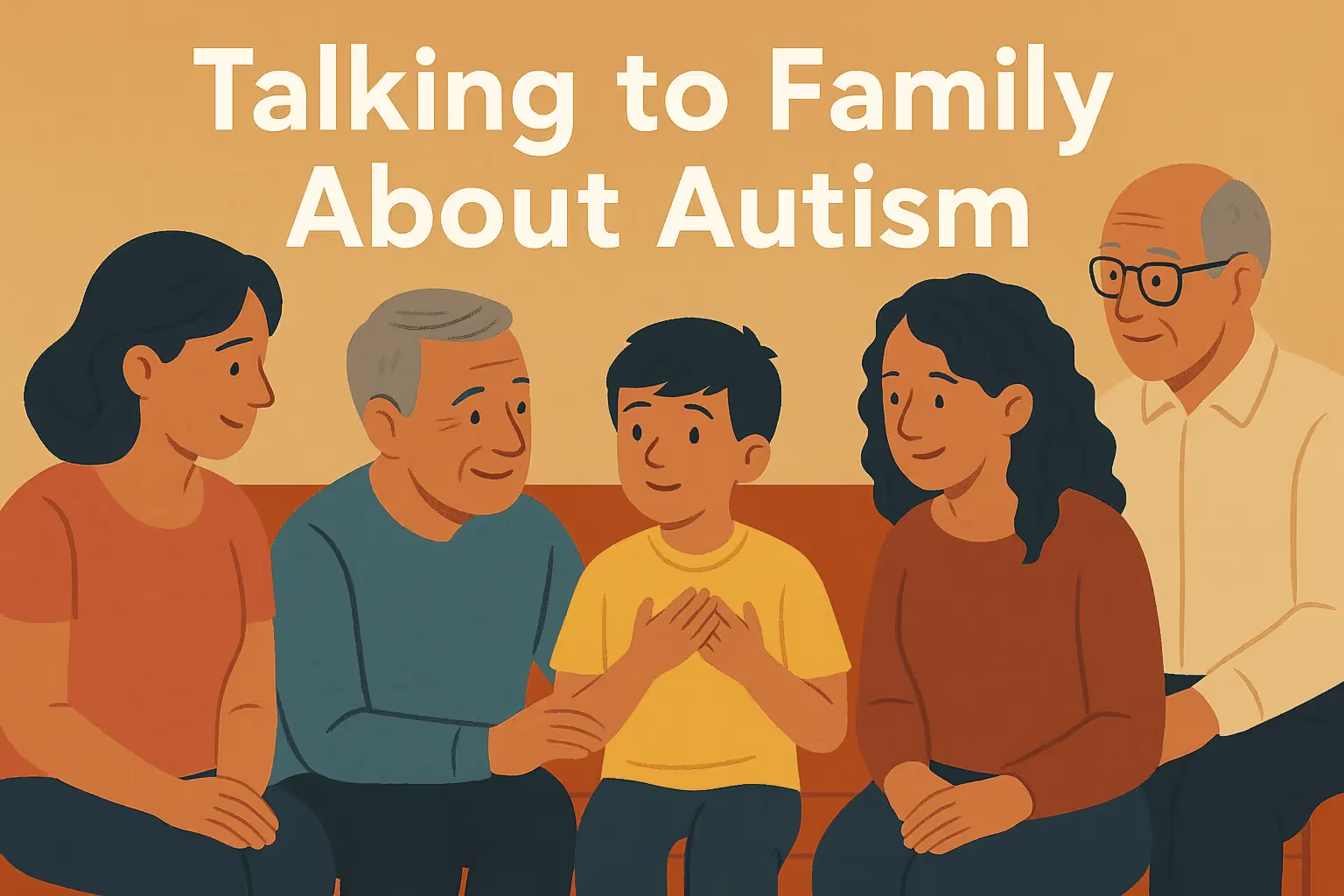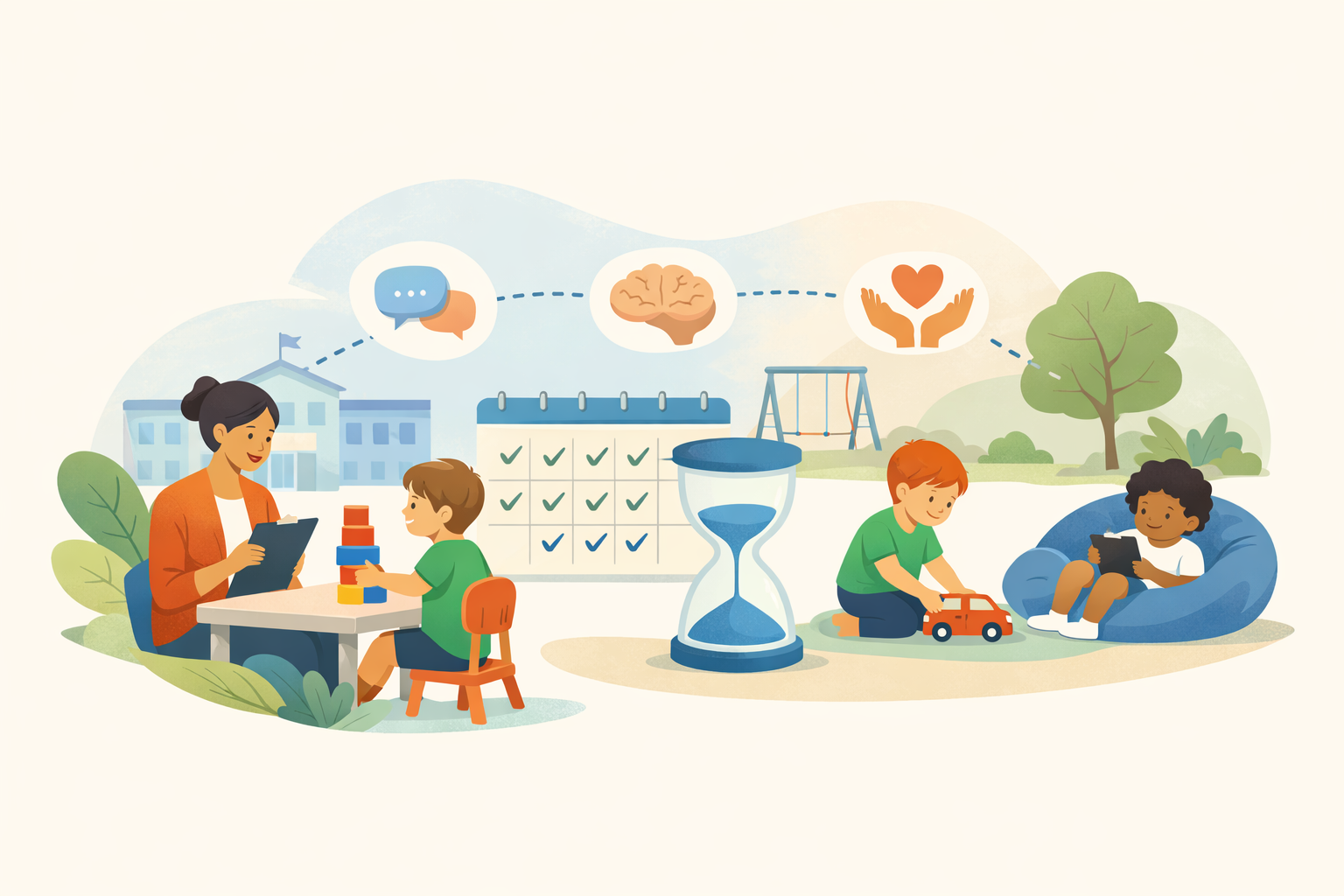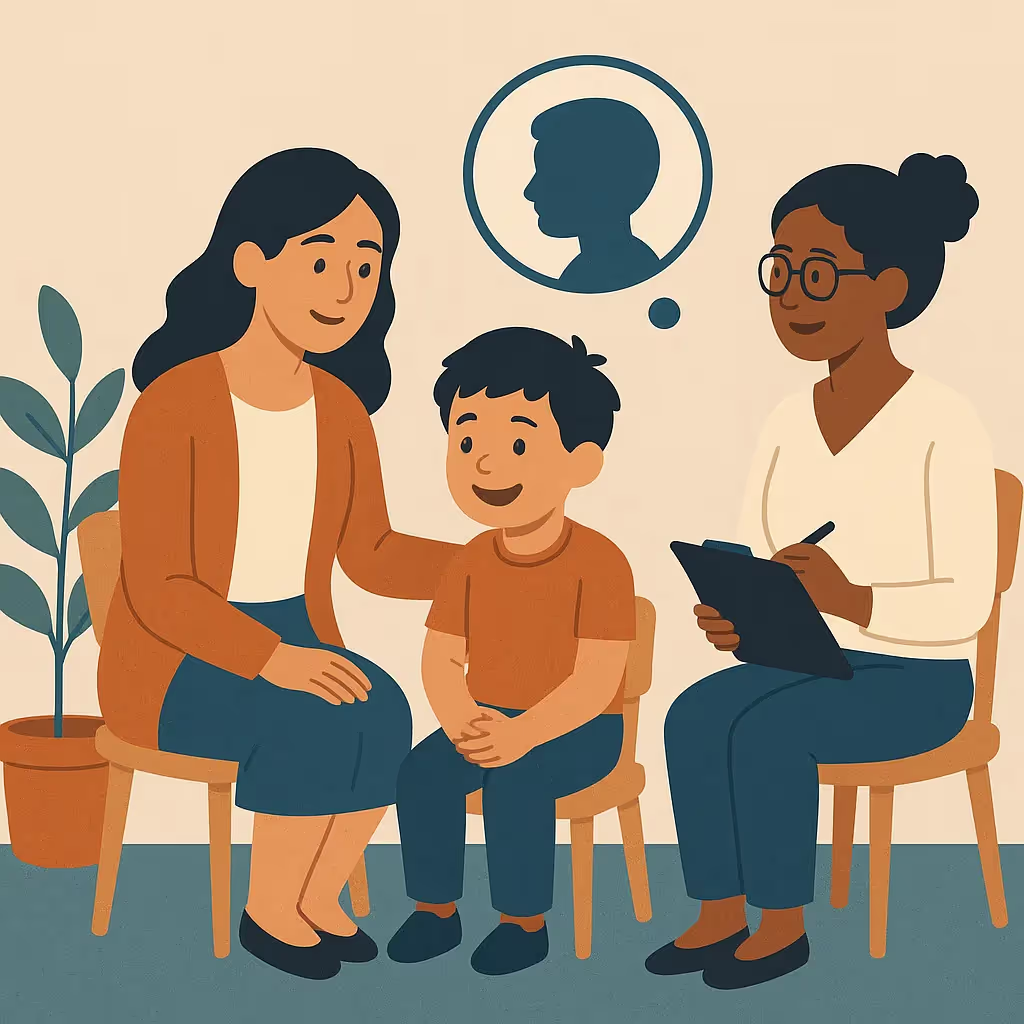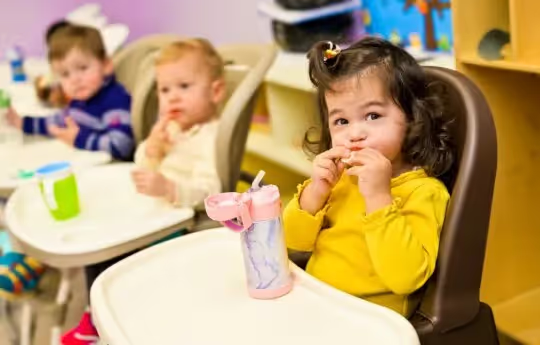How to Talk to Extended Family About Autism

When your child is diagnosed with autism, it often becomes a learning journey not just for you, but for the entire family. Many relatives want to be supportive but may not fully understand what autism means or how to interact in ways that feel respectful and affirming. With a little preparation and a lot of heart, these conversations can build deeper connections and help your child feel understood, accepted, and celebrated by the people who matter most.
I hope this guide provides you with a framework of how to approach conversations with extended family about autism. From explaining the diagnosis across generations to sharing easy-to-understand resources and setting clear boundaries, it’s all about building a supportive circle around your child.
Explaining the Diagnosis Across Generations
Different generations often carry different cultural understandings of developmental differences. Tailoring how you share your child’s diagnosis can help the message land in ways that feel respectful and clear.
For grandparents and older relatives (Silent Generation, Baby Boomers)
Many in this group grew up during a time when developmental disabilities were misunderstood or hidden. They may benefit from hearing how much has changed in our understanding of autism and seeing the diagnosis as a helpful tool, not a label.
- “We’ve learned that [child’s name] is autistic, which helps us understand how their brain works and what kind of support helps them thrive. You might not have heard autism described this way before, but we’re learning a lot that’s helped us feel more confident and connected.”
- “It’s not something to fix or treat. It’s just a different way of processing the world, and having this information helps us support [child’s name] better.”
Resources for grandparents:
- The Grandparent’s Guide to Autism Spectrum Disorders
- Autism Grandparents Club
- Generations Ahead Network (GAN)
For aunts, uncles, and cousins (Gen X, Millennials)
This group may be more familiar with the language of neurodiversity but still benefit from personal examples.
- “Autism affects how [child’s name] communicates, handles sensory input, and connects socially. They may prefer quieter environments, need time to warm up, or interact in ways that seem different.”
- “The diagnosis gives us tools to understand and support them, and it’s helping us notice and celebrate their strengths too.”
Helpful articles for extended family:
- Advanced Autism: How to Talk to Extended Family
- Mastermind Behavior: Involving Extended Family
- Milestones: Siblings and Extended Family
For kids and teens (Gen Z and younger)
Simple, relatable language works best.
- “You might not always know what [child’s name] is thinking or feeling, but they still want to play and be included. You can try asking what games they like or just sitting nearby with a toy.”
- “They might not talk the same way or want to play the same games, but they’re still your cousin and want to be included.”
For supporting young relatives:
Setting Boundaries Around Sensory Needs and Family Events
Family gatherings can be joyful, but they often come with lots of unstructured social time and changes in routine. Proactively communicating your child’s needs can make a big difference in creating a supportive environment.
You might say:
- “We’ll bring noise-canceling headphones and may take breaks if things get loud.”
- “Please don’t be offended if [child’s name] doesn’t want to hug or talk right away. They’re still happy to see you.”
- “We may head out early if [child’s name] starts getting overwhelmed, but we’re looking forward to being there.”
Offer alternatives when possible. Let family know about preferred activities your child might enjoy or suggest setting up a quiet space where they can recharge. These small adjustments can turn a stressful situation into one that’s enjoyable for everyone.
Sharing Educational Tools with Family
Sometimes relatives want to help but aren’t sure how. Pointing them to thoughtful, beginner-friendly resources can help build understanding without putting the burden of education entirely on you.
Here are a few to consider:
- Video: “Amazing Things Happen” on YouTube – A short, animated explanation of autism that’s warm, accessible, and great for both kids and adults
- Children’s book: All My Stripes by Shaina Rudolph and Danielle Royer – A storybook that helps kids understand autism through the lens of an autistic zebra
- Parent guide: Uniquely Human by Dr. Barry Prizant – A compassionate, strengths-based book written for families
- Articles: Child Mind Institute and Autism Connection both offer helpful guidance specifically on how to talk to extended family
When sharing these, you might say, “This helped us better understand [child’s name], you might find it helpful too.”
Responding to Unhelpful Comments
Even well-meaning relatives may say things that are dismissive or based on outdated ideas, like:
- “They don’t look autistic.”
- “Are you sure it’s not just a phase?”
- “My kid did that too. Don’t stress so much.”
You don’t need to explain everything or defend your parenting. Simple, confident replies are often the most effective.
Try:
- “Autism doesn’t have one look. It shows up differently in everyone.”
- “The diagnosis helps us give [child’s name] the support they need.”
- “Every child is different, but this has been consistent for [child’s name], and we trust the process we’re in.”
You can end the conversation there or invite further discussion if you feel comfortable. Protecting your peace is just as important as educating others.
Building Inclusive Traditions
Your child should never have to sit on the sidelines of family life. Inclusive traditions aren’t about making them participate in everything, but about creating space for them to engage in ways that feel safe and authentic.
Here’s how family can help:
- Set up quiet, sensory-friendly areas during gatherings
- Let your child participate in structured, predictable roles
- Normalize the need for breaks or alone time
- Recognize that nonverbal communication and solo play are still forms of engagement
Inclusion leads to more thoughtful, flexible, and connected family traditions. When the goal is comfort and connection over perfection, everyone benefits.
If this post was helpful, you might also enjoy my article on Sensory-Friendly Summer Activities for the Whole Family which includes inclusive options for kids with different sensory needs and plenty of ideas relatives can enjoy together.
In Closing
Explaining your child’s autism diagnosis to extended family is not always easy, but it can be a powerful step toward building understanding, support, and connection. Start with what feels most manageable. Share what helps your child thrive. Set boundaries with confidence. Over time, many relatives will grow into incredible allies- and for those who don’t, your priority remains clear. You are creating a life for your child that is rooted in respect, love, and belonging.
Like what you read? Share it with someone who might too.
High Quality, Local ABA
If you are ready to partner with a local BCBA and receive the highest quality of care, reach out today!













